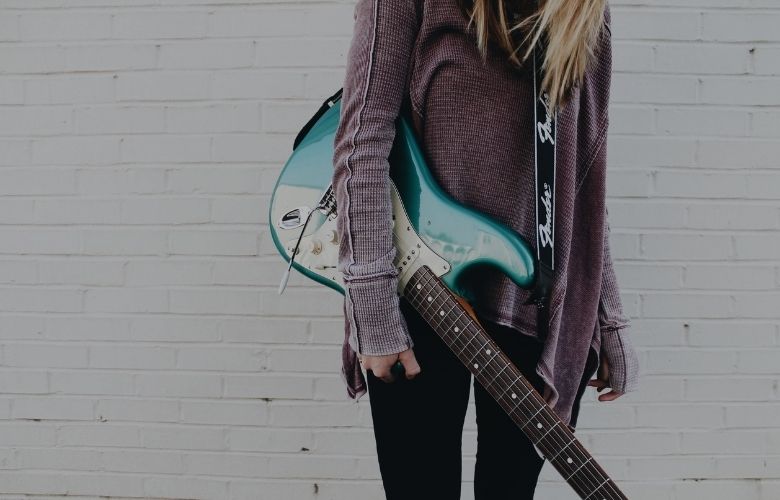
The UK Musicians’ Union has publicised new reports that sexual harassment and abuse are still an ongoing issue for many musicians following the pandemic. Despite the #MeToo movement, the union has found failings are still present and is now calling on the UK government and the wider industry to protect musicians and workers from victimisation and harassment in association with the #ThisIsNotWorking alliance, which is led by the TUC.
Back in July 2021, the UK government responded with commitments to address sexual harassment, which included:
The MU is urging for more to be done in the post-pandemic world with concerns that more people could actually be more vulnerable to exploitation in an unpredictable climate where many are seeking employment following lost jobs.
They also note that recent developments in this area point to the urgency of upping the seriousness of the campaign, notably the statements from musicians Rebecca Ferguson and Lily Allen, which sadly outline their stories of sexual harassment, assault, bullying, and coercive control undertaken by organisations and senior figures in the industry. The MU explicitly acknowledges that this is absolutely not exclusive to high-profile artists, but is present at every level and in every role, including behind-the-scenes workers.
Singer-songwriter Rebecca Fergusson supported the MU’s call to action, saying:
“What we are talking about here is injustice. An imbalance of power and people using their power and their position to abuse people with less power. It’s not good enough! We need to be able to call these things out for what they are with no fear, or it will never change.
We have future generations to think about; there is a huge responsibility on all of us working in the creative arts to create a better and safer environment for the youth. There is no use in pushing the youth to work within the creative industry’s if we’re not willing to tackle these kind of problems.
We have normalised abuse for too long and it needs to stop! I support the Musicians’ Union and I hope that 2022 is the year that adequate legislation is introduced to protect people working within the creative industries. A Standards Authority that is completely independent should work alongside MU to enforce legislation.
I was told that I had been booked by the people involved in this case in the past and that me providing a comment could compromise me! To that I say, let me be compromised. I will always speak out against abuse and stand up for people who are suffering injustice and the rest of the industry needs to grow a backbone and do the same, stand up and speak out against abuse! Because if we all stand together, it will stop!”
The other development outlined by the MU highlights reports that have come to light from a group of women who were former employees and freelancers at a music promotions company in England. These reports share testimonies of sexual harassment and assault, and general ill-treatment from their employer.
One anonymous statement read:
“I experienced sexual harassment constantly at work – both in and outside of the office. I was regularly groped and touched inappropriately. Outside the workplace, my manager would often send me lewd, explicit photos or videos of himself. I never felt safe.”
While another explained:
“Like many of the other survivors I know I’m still traumatised by my experiences. When you choose to work in the music industry it’s often because you have a real love of the arts. You want to be surrounded by passionate, creative people – not entering a workspace when you worry you may be assaulted by your employer. More needs to be done to protect people in the industry both on and off-stage. I’m hopeful that through sharing stories like ours that we can help implement industry-wide positive change.”
Naomi Pohl, Deputy General Secretary of the MU, says:
“It’s unacceptable that so many artists, musicians, employees, and freelancers have suffered abuse at work and that many have left the industry as a result. With more women stepping forward to share their experiences, it’s vital the industry adopts a zero-tolerance approach to ensure everyone in the creative arts is protected as they return to work.
We’re pleased to see the Government is recognising the seriousness of this issue after having recently convened a series of important creative industries-wide meetings to ensure positive action is implemented. Now we ask for action: we need the Government to strengthen the law to prevent sexual harassment at work before it happens.
Together, with survivors, and other trade bodies like UK Music who are committed to ensuring change happens, we want to create a movement to ensure the music industry is a safe place to work for everyone.”
Accessibility At The Smith Center Series: Part One
James “Fitz” FitzSimmons Interview: The Boys In The Band On Netflix


Michelle is a musician and composer from the UK. She has performed across the UK and Europe and is passionate about arts education and opportunities for women and girls.
Read Full Profile© 2021 TheatreArtLife. All rights reserved.

Thank you so much for reading, but you have now reached your free article limit for this month.
Our contributors are currently writing more articles for you to enjoy.
To keep reading, all you have to do is become a subscriber and then you can read unlimited articles anytime.
Your investment will help us continue to ignite connections across the globe in live entertainment and build this community for industry professionals.